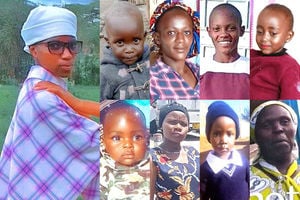Pomp and ceremony to mark third State funeral
What you need to know:
- Generally, state funerals are held to involve the public in a national day of mourning.
A state funeral is a public ceremony observing strict rules of protocol held to honour heads of State or other people of national significance.
State funerals usually include pomp and ceremony as well as religious overtones and distinctive elements of military tradition.
Generally, state funerals are held to involve the public in a national day of mourning.
They are often very rare — Prof Wangari Maathai’s State funeral will only be the third in Kenya — and thus they often generate huge publicity from national and global media outlets. (READ: Maathai to be accorded State funeral)
There have only been two State funerals in independent Kenya — that of founding president Jomo Kenyatta on August 31, 1978, and that of former vice-president Kijana Wamalwa on September 6, 2003.
Kenyatta’s funeral was rated one of the most colourful in the world. His body lay in state for 10 days and national mourning lasted one month.
Hundreds of thousands of people viewed the body and on one day, about 90,000 people saw it, according to media reports at the time.
But like with all funerals of important personages, there is no lack of controversy. Some family members wanted Kenyatta buried at his Gatundu home.
National stature
Kenyatta was finally buried at the marble mausoleum at Parliament Buildings to reflect his national stature and to also honour Parliament.
On the day of his burial, the casket was wheeled from State House through the streets of Nairobi to the mausoleum by the same gun carriage used at the 1965 funeral of Sir Winston Churchill, Britain’s World War II Prime Minister.
Awaiting the procession were representatives of 82 nations, including 11 heads of State and government. Kenya’s second State funeral was in 2003 when the eighth VP died.
The burial was also characterised by the same tussles over burial place. The government had made available the Heroes’ Corner at Uhuru Gardens, but his family and clan, the Baengele, prevailed when they decided to bury him at his Milimani home in Kitale, complete with elaborate cultural rites.
However, Prof Maathai’s State funeral today will be toned down by the fact she will be cremated according to her Will and the ashes interred at the Wangari Maathai Institute of Peace and Environment Studies at the University of Nairobi’s Kabete campus.
It is, however, expected to have all the other trappings, with the funeral service being held at the country’s symbol of independence, Uhuru Park.
The service will be attended by the Head of State, Mr Mwai Kibaki, and the country’s leading clergy.
And like in the case of Kenyatta and Wamalwa, relatives of Prof Maathai had also wanted her buried at Ihithe Village next to her mother, citing cultural dictates.




